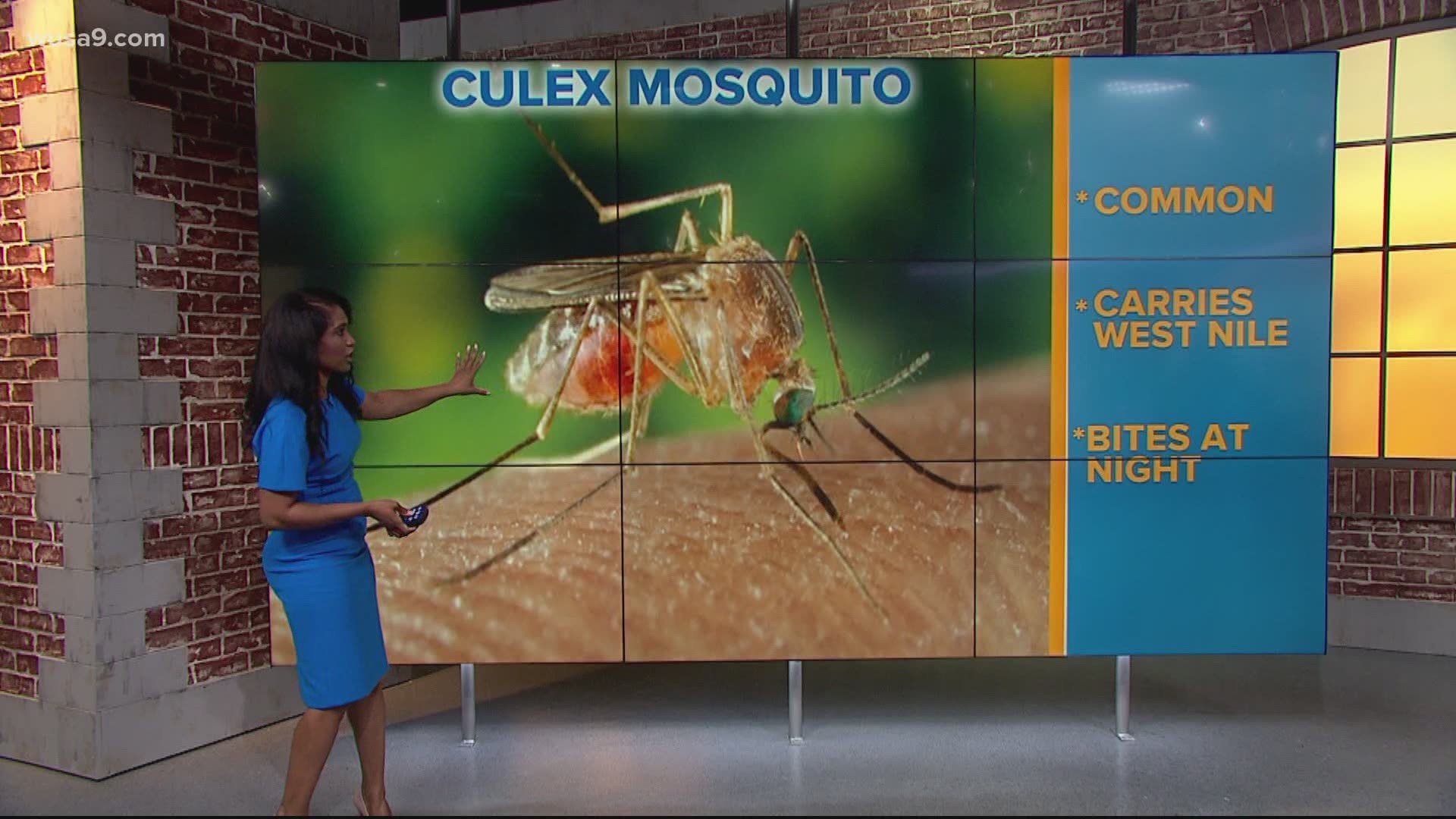OLYMPIA, Wash. — The first two cases of West Nile virus in Washington state this year have been confirmed in eastern Washington.
A Yakima County man in his 50s was hospitalized due to the infection, and a Benton County man in his 60s was also infected but did not need to be hospitalized, according to the Washington State Department of Health (DOH).
West Nile virus is almost always spread to people by the bite of an infected mosquito and it can be a serious or even fatal illness, said DOH officials. But the majority of people who get infected do not get sick.
According to the DOH, about one in five people will develop a fever or other symptoms that go away without medical treatment. Even fewer, about one in 150 people infected, will have more severe symptoms.
Severe symptoms may include a headache, high fever, neck stiffness, stupor, disorientation, tremors, convulsions, muscle weakness, paralysis, and coma.
“Spending time outdoors can help with social distancing to prevent COVID-19, but it can also put you at risk for mosquito-borne disease,” said epidemiologist Hanna Oltean. “People throughout Washington should take precautions to prevent mosquito bites.”
Because West Nile is contracted through mosquito bites, the DOH recommends avoiding mosquito prone areas such as areas with lots of standing water. Officials also recommend using an EPA-registered insect repellent, wearing long sleeves and pants when outdoors, and avoid "mosquito prime time" which is usually in the early morning and evening hours.
West Nile virus has been detected this summer in mosquitoes in Yakima, Benton, and Franklin counties, but it can affect areas throughout the state. However, DOH officials said the risk is generally highest in eastern Washington.

